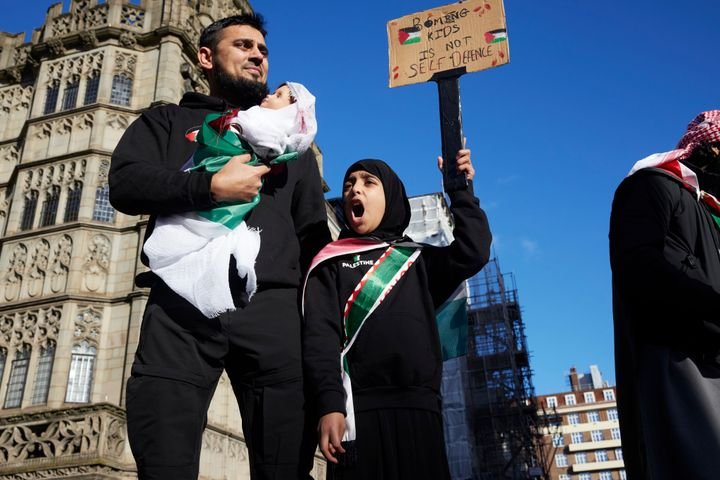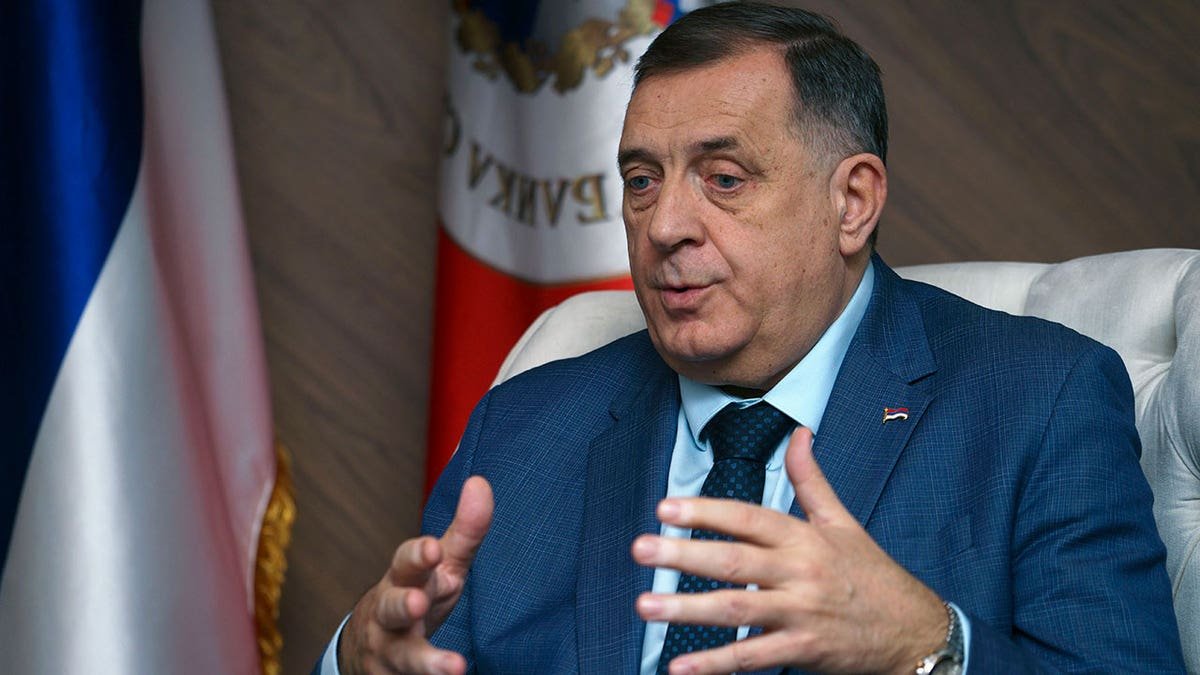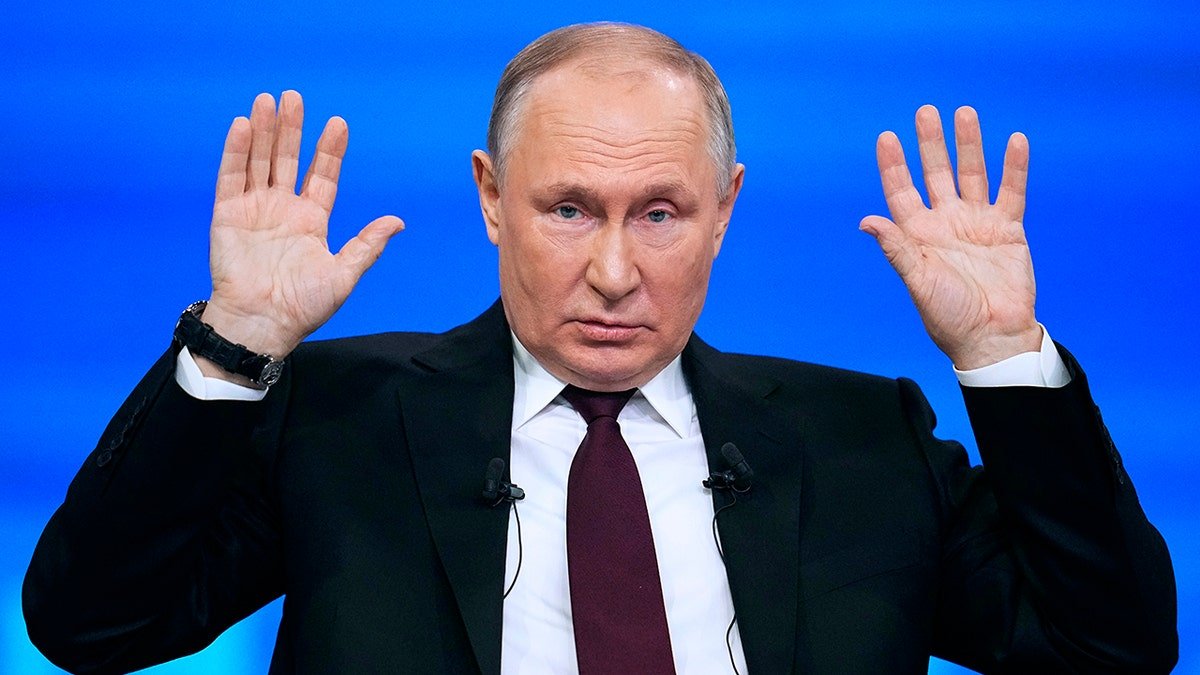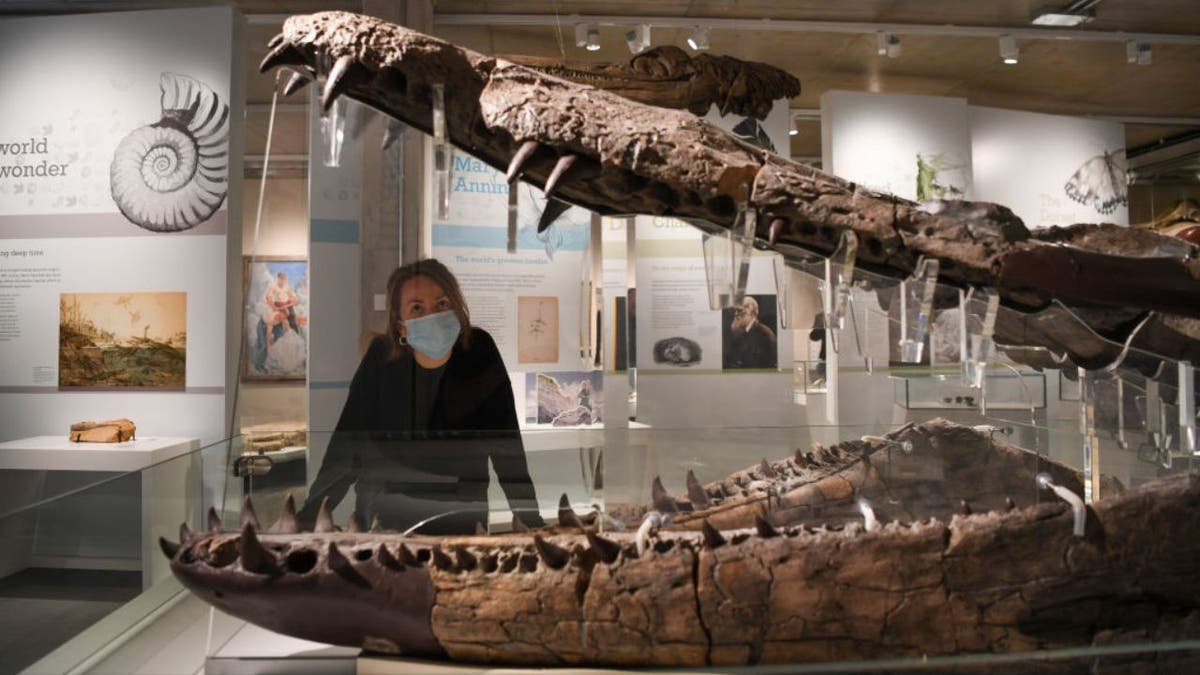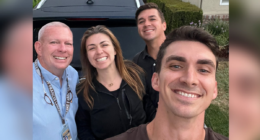LONDON (AP) — Pro-Palestinian demonstrators marched peacefully through central London on Saturday, even as right-wing counter-protesters clashed with police, after a week of angry debate over whether to permit the event on a day when Britain honored its war dead.
The day unfolded in a backdrop of tensions fueled by Home Secretary Suella Braverman who earlier this week characterized pro-Palestinian demonstrations as “hate marches” and called for Saturday’s event to be blocked out of respect for Armistice Day events marking the end of World War I.
The skirmishes between police and counter-protesters carrying the Union flag of Great Britain and the red-and-white flag of England appeared to confirm the concerns that Braverman’s comments would attract right-wing elements looking for an excuse to confront the pro-Palestinian marchers.
Braverman, who oversees law enforcement in Britain, must now resign, said Humza Yousaf, the first minister of Scotland.
“The far-right has been emboldened by the Home Secretary,” Yousaf said on X, formerly known as Twitter. “She has spent her week fanning the flames of division. They are now attacking the Police on Armistice Day. The Home Secretary’s position is untenable.”
London police arrested 82 people at one location to prevent a breach of the peace. The force said they were part of a group of counter-protesters trying to reach the main protest march. Another 10 arrests were made throughout the day, on charges including possession of a knife and attacking an emergency worker.
’’There are a number of groups within this counter-protest who have split off and seemed intent on seeking confrontation within the main Palestinian march,″ Assistant Commissioner Matt Twist said in a video statement. “And the policing operation at the moment is being effective in preventing that happening.″
He said the march was the largest in London since the start of the conflict. Police estimated that some 300,000 people took part, snaking their way through the city from Hyde Park to the U.S. Embassy about 3 miles (5 kilometers) away.

Alex McBride via Getty Images
More than 2,000 officers, some called in from surrounding forces, are on the streets of the capital this weekend to make to ensure marchers obey the law and to prevent potential confrontations with counter protesters, the Metropolitan Police Service said.
Police are also taking steps to reassure the Jewish community, which has been targeted by a surge in antisemitic incidents since Hamas militants attacked Israel on Oct. 7 and Israeli forces responded with strikes and sending troops into the Gaza Strip.
“We know the cumulative impact continued protest, increasing tensions, and rising hate crimes are having across London and the fear and anxiety our Jewish communities in particular are feeling,” the police said in a statement. “They have a right to feel safe in their city, knowing they can travel across London without feeling afraid of intimidation or harassment.”
The law enforcement operation comes after Metropolitan Police Commissioner Mark Rowley resisted pressure from political leaders to ban the march.
Prime Minister Rishi Sunak and Braverman have also expressed concern that the protests could spill over into Sunday, when King Charles III and the prime ministers of Commonwealth nations will lay wreaths at the national war memorial, known as the Cenotaph.
The commemoration events are “sacred” to Britain and should be a time for unity and “solemn reflection,” Sunak said in a statement before Saturday’s events got underway.
“It is because of those who fought for this country and for the freedom we cherish that those who wish to protest can do so, but they must do so respectfully and peacefully,” he said.
While Sunak and Braverman’s comments were directed at pro-Palestinian protesters, critics had said they risked sparking confrontations between the marchers and far-right groups.
Of most concern were Braverman’s comments suggesting that London police had been more lenient toward pro-Palestinian demonstrators and Black Lives Matter supporters than right-wing protesters or soccer hooligans. Braverman said the Metropolitan Police force was ignoring lawbreaking by “pro-Palestinian mobs.”
On Saturday, fights broke out near the Cenotaph between police and right-wing protesters chanting “England till I die.″ Police used batons to stop the protesters, and ceremonies at the memorial weren’t interrupted. Other clashes took place in other parts of the city, including Chinatown and near the Houses of Parliament.

Annabel Lee-Ellis via Getty Images
Following the confrontation near the Cenotaph, police said the counter-protesters were not a single group and officers were tracking them as they moved away into other parts of London. If they attempted to attack the pro-Palestinian march, “we will use all the powers and tactics available to us to prevent that from happening,” police said.
Organizers of the pro-Palestinian demonstration say they have taken steps to ensure it doesn’t conflict with Armistice Day events. The march moved off just after midday, more than an hour after the nation observed a two-minute silence, following a route from Hyde Park to the U.S. Embassy that doesn’t go near the Cenotaph.
Ben Jamal, director of the Palestine Solidarity Campaign, said the marchers are calling for an end to the bombing of Gaza, and he criticized Braverman for characterizing the protesters as extremists who were going to desecrate the Cenotaph. The group has sponsored marches every Saturday in London since the war began.
“We said to the police we did not want to be anywhere near Whitehall on Nov. 11; we did not want to disrupt preparations for the commemoration of remembrance on the Sunday,” Jamal told the BBC. “It is inconceivable, unless she doesn’t speak to the police, that the home secretary did not know that when she made her remarks.”
In an effort to prevent confrontations, police declared an exclusion zone around the Cenotaph and stationed a 24-hour guard around the memorial. Protesters were also barred from the streets around the Israeli Embassy, near the start of the march, and some areas next to the U.S. Embassy.
While the march was largely peaceful, protesters continued to use language that has sparked concern among many Jewish groups and those who see Israeli actions in Gaza as legitimate acts of self-defense.
Marchers carried signs accusing Israel of genocide in Gaza and chanted “from the river to the sea, Palestine will be free.’’ While Palestinian supporters say the chant is a call for freedom for everyone living in the area between the River Jordan and the Mediterranean, many Jews see it as a call for the destruction of Israel.
Such language strikes fear into the Jewish community, Lee Harpin, the political editor of the Jewish News, told Sky News. Even though he supports the right to protest, he said, the images from the demonstrations often have fringe elements spouting violent views.
“It’s fair to say, I mean, for most of the Jewish community, looking on, looking at social media, seeing some of the banners, the hateful slogans being chanted, the headbands that look like they are Hamas-related at the very least, it’s very frightening to, to, to witness mass demos taking place on the streets of London,″ he said. “That’s not to say everybody on these demos … is violent or hateful. But there’s definitely a fringe on these demos every single week.″
